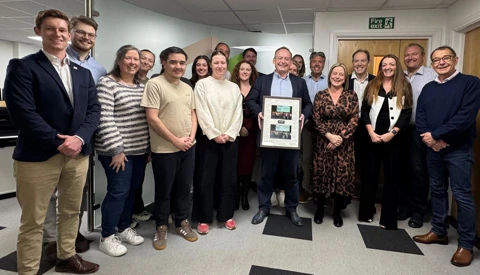Research conducted by global law firm Proskauer Rose has revealed that Guernsey remains the most prevalent jurisdiction for European venture capital (VC) funds.
The report brings to light key data that provides a comprehensive analysis of the European venture capital fundraising market.
Representing more than €11 billion in capital, the Proskauer team analysed 32 key data points and conditions from 38 European-focused venture capital funds raised from 2022-2023 ranging in size from €22 million - €900 million. The funds were all either specifically focused on Europe or had Europe as a core geography in their investment strategy.
10 of the funds were Guernsey-based, with five in Jersey, four in Luxembourg, five in each of England and Delaware, and the remainder of the sample across other jurisdictions.
The report states: “The difference in jurisdiction is driven by a multitude of factors, including the fact that European venture capital funds tend to be, on average, smaller than European private equity and credit funds and therefore favour jurisdictions which are considered as familiar, lower-cost and less administratively burdensome.”
Guernsey, as a tried and tested jurisdiction for investment and funds and a specialist global centre for open and closed-ended fund structures, is a leading jurisdiction for private equity, venture capital, real estate, infrastructure, renewables, debt, listed securities and sustainable finance.
There are a range of fund structures available in Guernsey with different levels of regulatory oversight, offering flexibility, global access and speed to market.
The report continues: “Consistent with prior data, US-based sponsors seem ready to deploy meaningful capital in Europe as the European venture capital market continues to mature and the trends observed may indicate that sponsors do not consider obtaining an EEA marketing passport to be integral to their ability to raise capital.”
Other insights include:
-
More venture capital sponsors exploring a longer term or evergreen fund strategy to sustain portfolio companies through a more prolonged period of growth;
-
Sponsors typically wanting the flexibility to keep more capital reserved for follow-ons to ensure that the fund can participate in later stage funding rounds to augment the value of prize assets;
-
And investors remaining willing to pay a premium to the sponsors that they back or which otherwise have a strong track-record, evidenced by the average percentage fee observed in venture capital remaining higher than other asset classes.
Edward Lee, Proskauer Private Investment Funds Partner in London, commented: “Over the last decade, there has been a remarkable growth in European venture capital fundraising, underlining investors’ increasing appetite for innovation and entrepreneurial investments in Europe. While we are witnessing a slight slowdown in the pace of fundraising now, this is driven more by macro elements than issues specific to European venture.
“LPs continue to have a positive view of venture capital and the European ecosystem continues to develop and weather the headwinds. Our fund terms survey once again shows that there is a clear differentiation in the market as compared to other asset classes, particularly buy-out funds. This has been a growing trend in our surveys over the years, as the European VC market matures and investors become more familiar with the specific requirements of venture investing and why buy-out fund terms (with which some institutional investors have more history) may not be a good fit.”
Guernsey Finance Chief Executive Rupert Pleasant said it is pleasing to see that Guernsey is a popular jurisdiction for establishing a European venture capital fund: “Our expertise in the field is well-known internationally, and coupled with first-class local service providers, this truly makes Guernsey a market leader in venture capital.”
It was also observed that owing to a tougher fundraising environment in the last couple of years, 59% of the funds sampled allowed for an extension of six months. Proskauer anticipates this figure increasing in the coming year given current market conditions.
You can learn more about the current uptick in continuation funds in our article with Carey Olsen’s Matthew Brehaut here.







